Advent 2024 Magi & Shepards
Colette Crossman Reyes
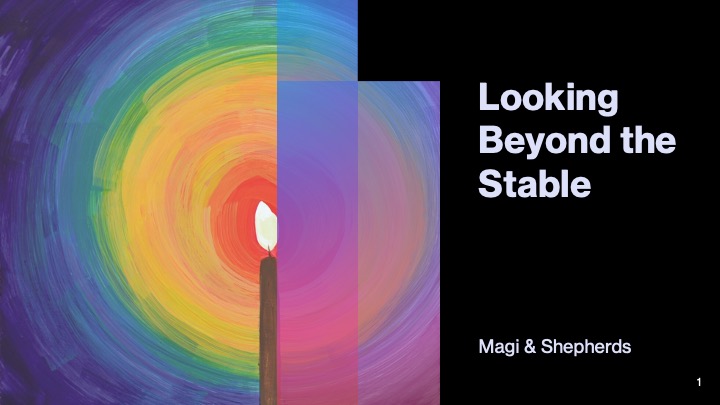
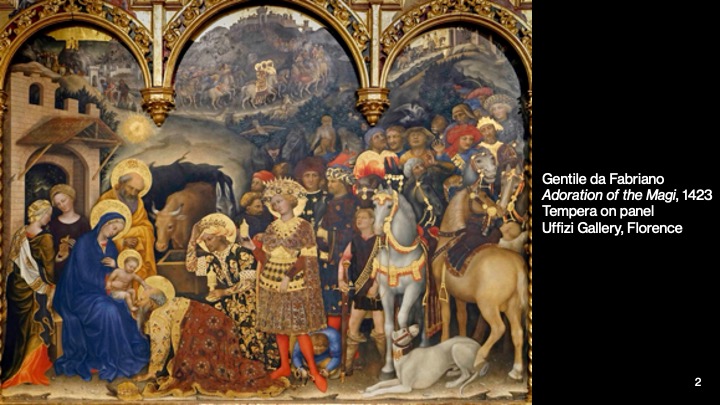
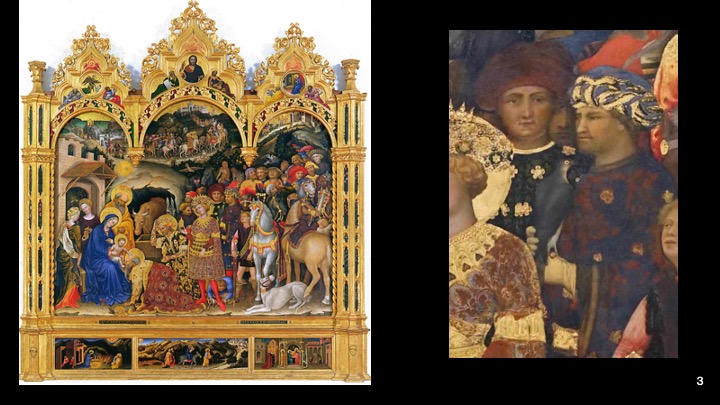
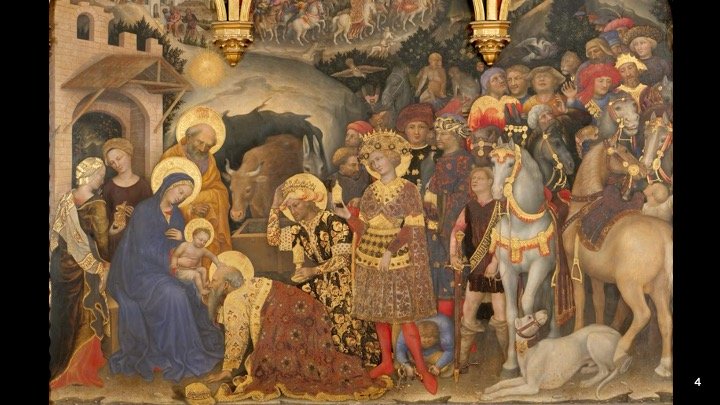
Gentile da Fabriano (Italian, c. 1370-1427)
Adoration of the Magi, 1423
Tempera on panel, 120 x 111 in. (~10 x 9 ft.)
Uffizi Gallery, Florence
· What words come to mind? How would you describe it?
· Magus meaning
· Why 3 & Symbolism of gifts
· Magi/kings dominant form until 15th c.
· Contemporized w/ inclusion of donor portraits, courtly dress
· Visually reinforces idea Jesus came for entire world; universality of salvation (exotic goods, crowded composition)
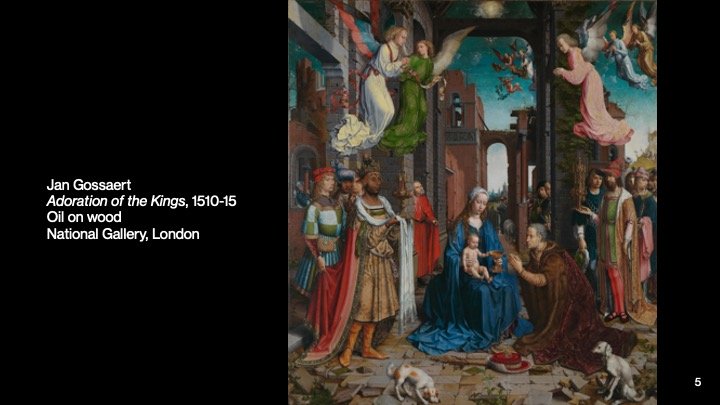
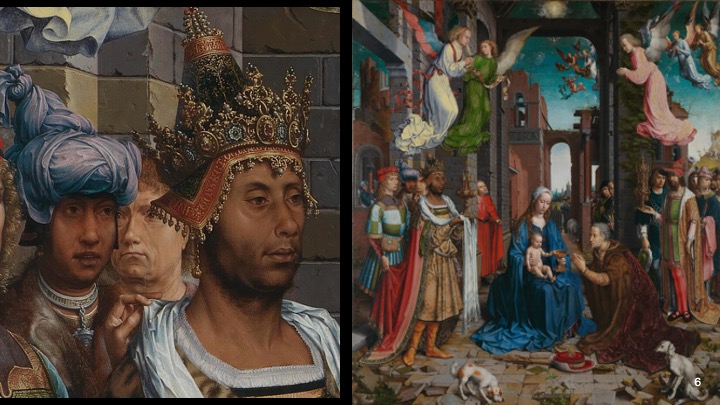
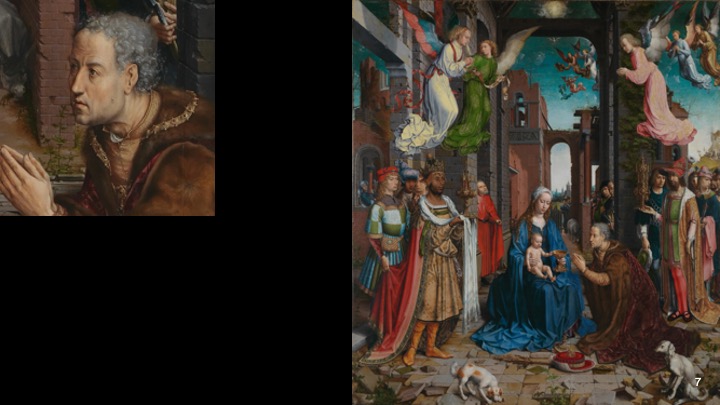
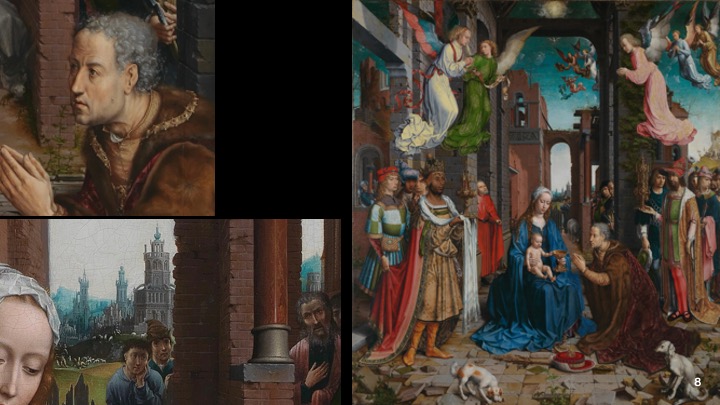

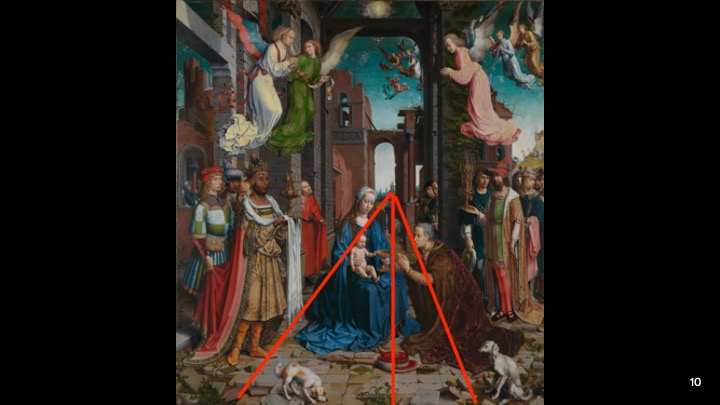
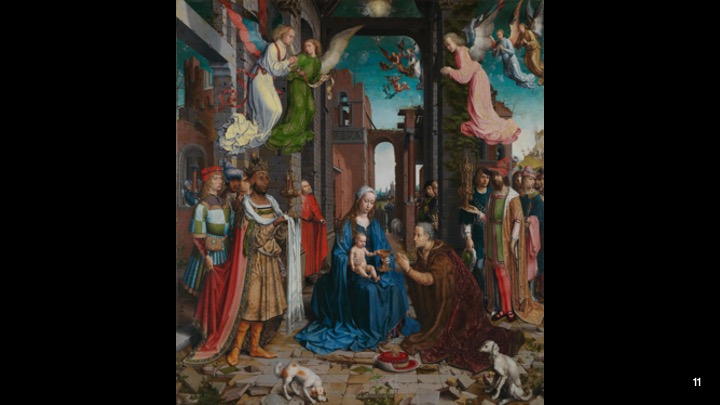
Jan Gossaert (Jean Gossart) (Netherlandish, c. 1478-1532)
Adoration of the Kings, 1510-15
Oil on wood, 69.8 x 63.7 inches (~6 x 5 ft.)
National Gallery, London
· Why kings no longer magi?
· Caspar, Melchior, Balthazar (3 parts of known world & political submission to Church)
· Contemporized w/ artist signatures, patron portrait, European landscape
· Humility & increased role for shepherds
o Greater humanity—no halos, extreme realism
o Division of rich/poor, shepherds literal “outsiders”; only kings draw close
o Linear perspective—Virgin mathematical center but shepherd is vanishing point
· Setting—decay, Isaac, Greek/Roman column
· Communion symbolism—lap as throne, proffers coin like wafer, kneels like at Mass
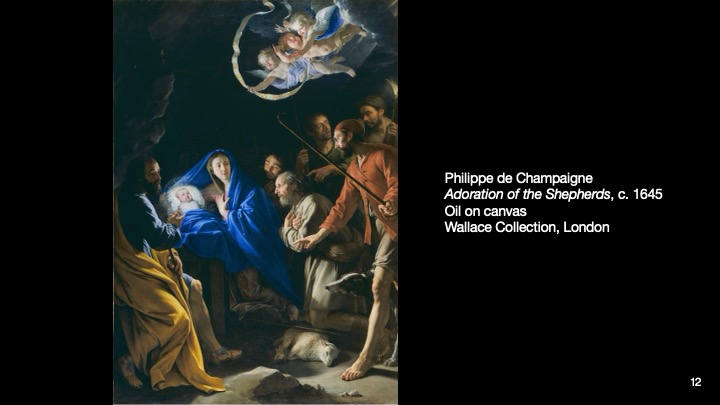
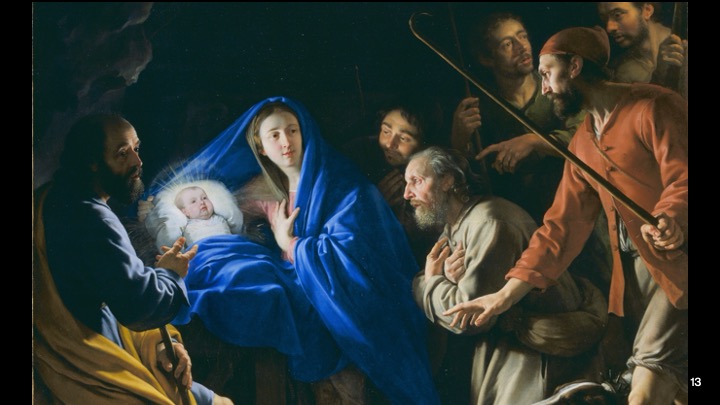
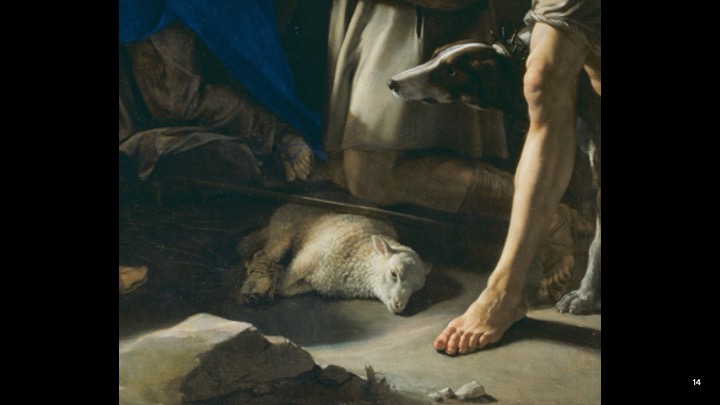
Philippe de Champaigne (French, 1602-74)
Adoration of the Shepherds, ca. 1645
Oil on canvas, 92.7 x 63.6 in. (~8 x 5 ft.)
The Wallace Collection, London
· Not specific subject until mid-1400s; never in Eastern art; they’ve now been invited in
· What words come to mind? How would you describe it?
· Baroque style/Counter-Reformation—intense emotion to inspire personal engagement
· Symbolism of gifts—Christ as good shepherd AND lamb who is slain
· Not depicted w/ flocks; leave daily tasks & everything behind to seek Christ
· Heir of David, the “shepherd-king”
· Humility—1st c. context/social status; visual elements (details, esp eye level)
· Invites viewer’s response through gestures, Mary’s gaze, lamb’s look
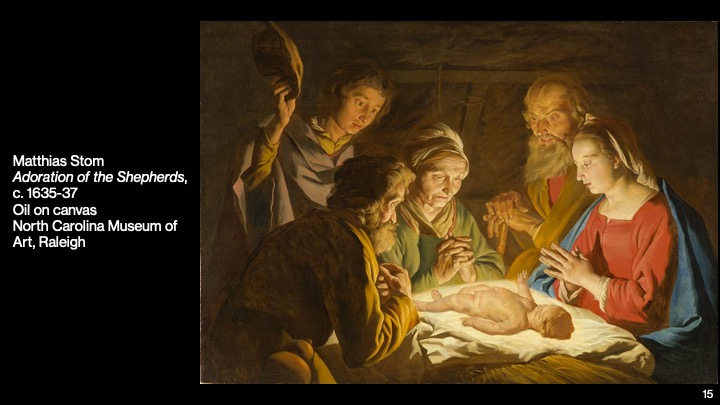
Matthias Stom (Netherlandish, c. 1600-after 1652)
Adoration of the Shepherds, c. 1635-37
Oil on canvas, 44 3/4 x 63 5/8 in. (~4 x 5 ft.)
North Carolina Museum of Art, Raleigh
· Life-sized, half-length figures at close range draw you into the action
· Portrait-like quality w/ strong psychological intensity; further elevates their status
· Strong gazes—first response is ocular: they go to Bethlehem to simply SEE
· Inclusion of woman and youth; family unit
Artists have long sought to contemporize the story of the shepherds and magi into their own context, underlining the immediate relevance of Christianity in their time and place
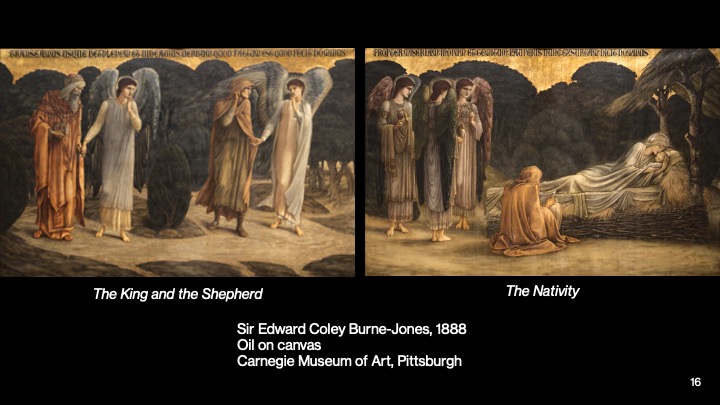
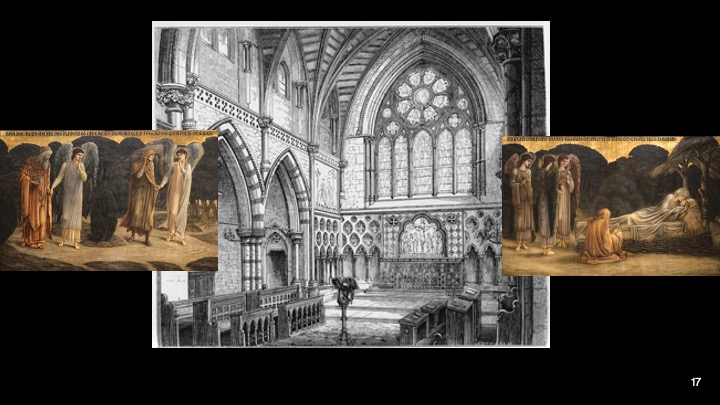
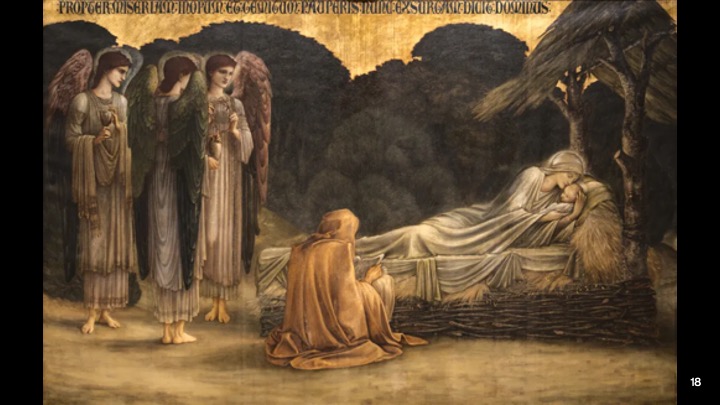
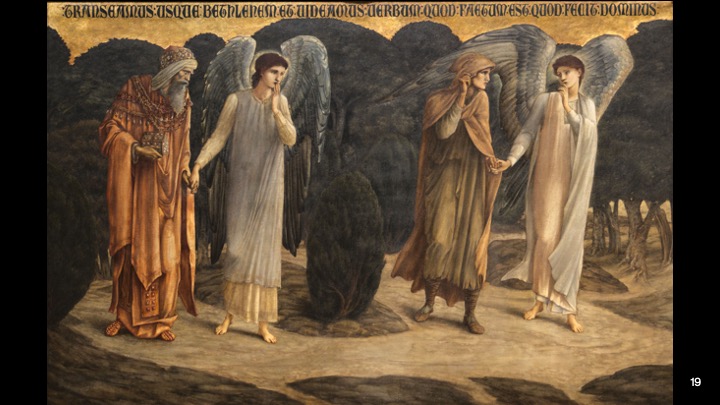
Edward Burne-Jones (British, 1833-1898)
The Nativity and The King and the Shepherd, 1888
Oil on canvas, ~81 x 124.5 in. (7 ft. x 10 ft.)
Carnegie Museum of Art, Pittsburgh
· Unprecedented to separate kings/shepherds from Nativity—focus on journey not arrival
· Unprecedented to have only 1 each—emphasizes individual journey & relationship
· Described as “rich and poor man”; radical they approach Christ as equals
· Eucharistic symbolism—destination is altar, straw=bread, platform=altar
· Merging Nativity w/ sacrificial death—funeral pyre, shroud, angels gifts, somber color
· Social context:
o Inscription Psalm 12:5 (KJV) – “For the oppression of the poor, for the sighing of the needy, now will I arise, saith the Lord.”
o Mournful tone = Jesus ability to sympathize w/ our human suffering
o Altar becomes space of social equality
King/shepherd inscription (Luke 2:15, KJV): Let us now go even until Bethlehem, and see this thing which is come to pass, which the Lord hath made known until us” (shepherds)
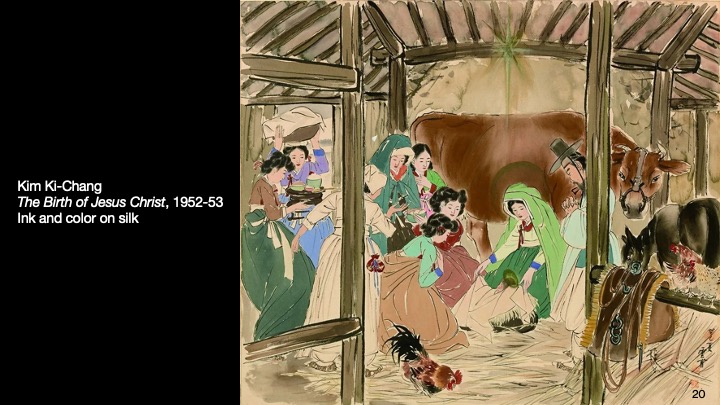
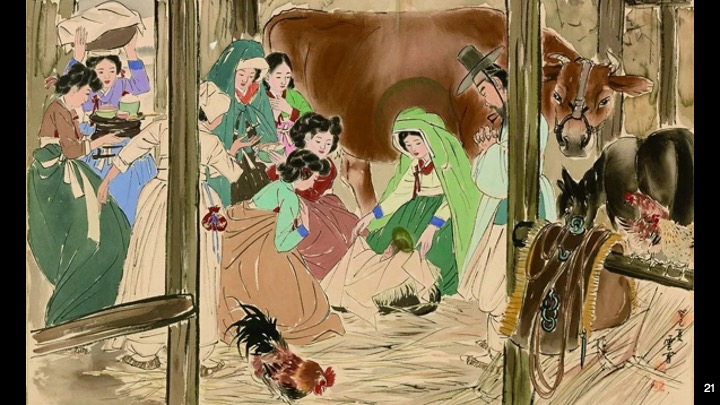
Kim Ki-chang (Korean, 1913-2001)
The Birth of Jesus Christ, 1952-53
Ink and color on silk, 76 x 63 cm.
· Korean Catholic artist, deaf
· Life of Christ series (30)—visions during Korean War, set in Joseon era before Japanese occupation
· Traditional dress (Hanbok, gat)
· Pastoral setting connects simple rural, village life of common Koreans to Jesus’ own humble beginnings
· WOMEN
· Rooster = auspicious symbol, heralding the arrival of light & a new beginning
· Green = coming of age, youth, vitality, growth
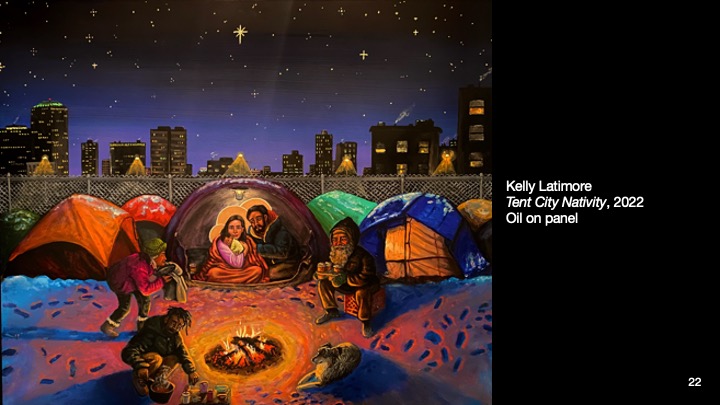
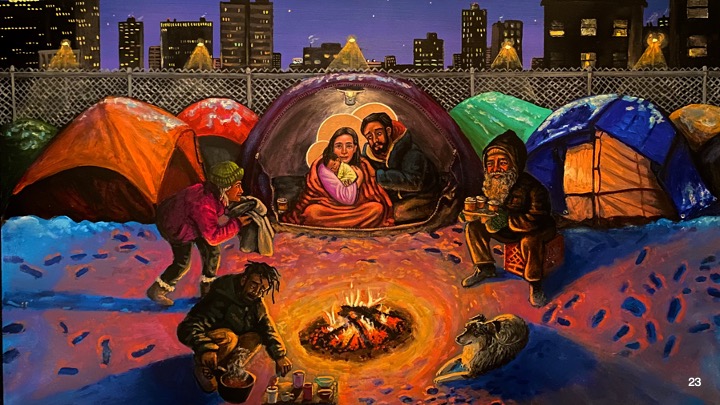
Kelly Latimore (American, b. 1986)
Tent City Nativity, 2022
Oil? on panel
· Christ born in a makeshift shelter
· Gifts brought by homeless & outsiders?
Prayer by Cameron Bellm
Jesus was born in a makeshift shelter, too—
A place not really meant for human dwelling—
And yet it was there that he met us, in the lowliest refuge.
Two thousand years later, it’s good to remember
That Christ is still being born, here and now,
Most especially in places we’d rather not go,
Places from which we’d rather look away.
God of illumination and incarnation,
Open not only our eyes, but our hearts,
That we may open, too, our hands
And make generous offerings of love,
As your holy light reflects from nylon tent flaps,
Your holy song rises from a crackling campfire,
Lit against the cold, against the night.
Amen
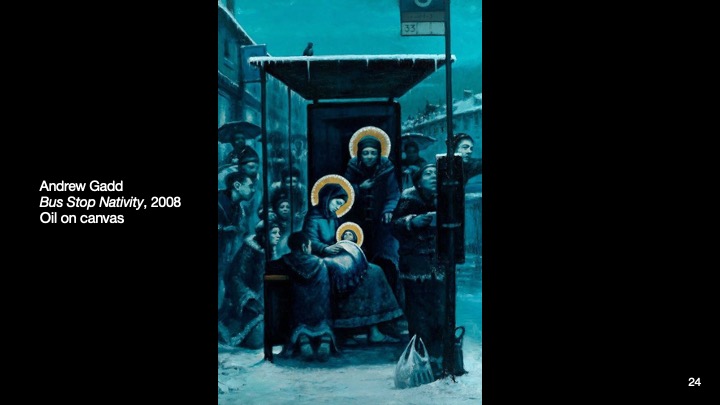
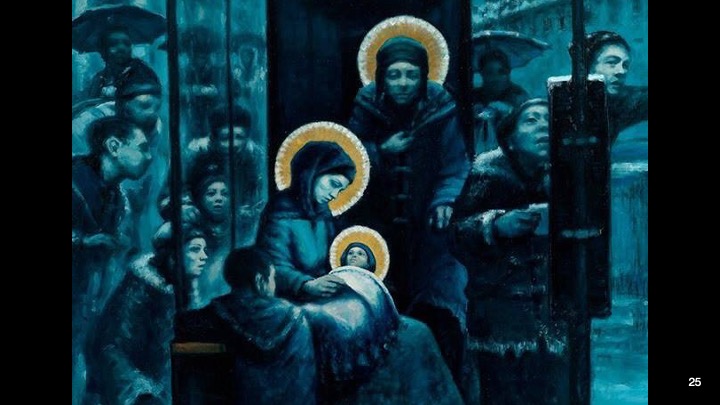
Andrew Gadd (British, b. 1968)
Bus Stop Nativity, 2008
Oil on canvas, 188 x 122 cm. (~6 x 4’)
· Commission, text “Be Part of the Action. Church, 25-12.”
· 33 links it to Crucifixion
· Shelter (bus stop or stable)—artist calls “a place people go to but never want to be”
· Range of responses
Church Advertising Network, said, “We are very used to the Renaissance image of the Nativity. But what would it look like if it happened today? Where would it take place? We want to challenge people to make them reassess what the birth of Jesus means to them.”
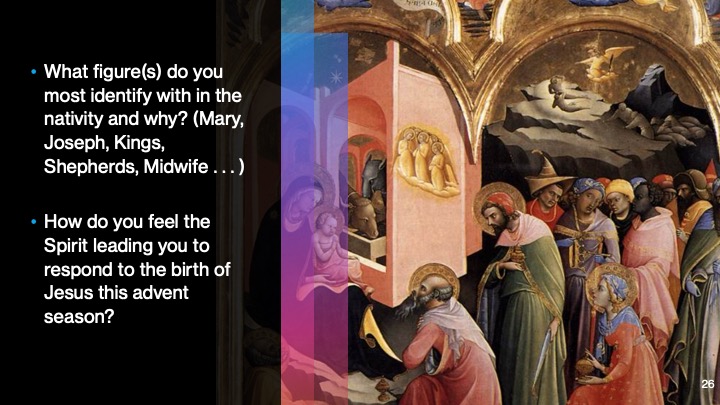
•What figure(s) do you most identify with in the nativity and why? (Mary, Joseph, Kings, Shepherds, Midwife . . . )
•How do you feel the Spirit leading you to respond to the birth of Jesus this advent season?